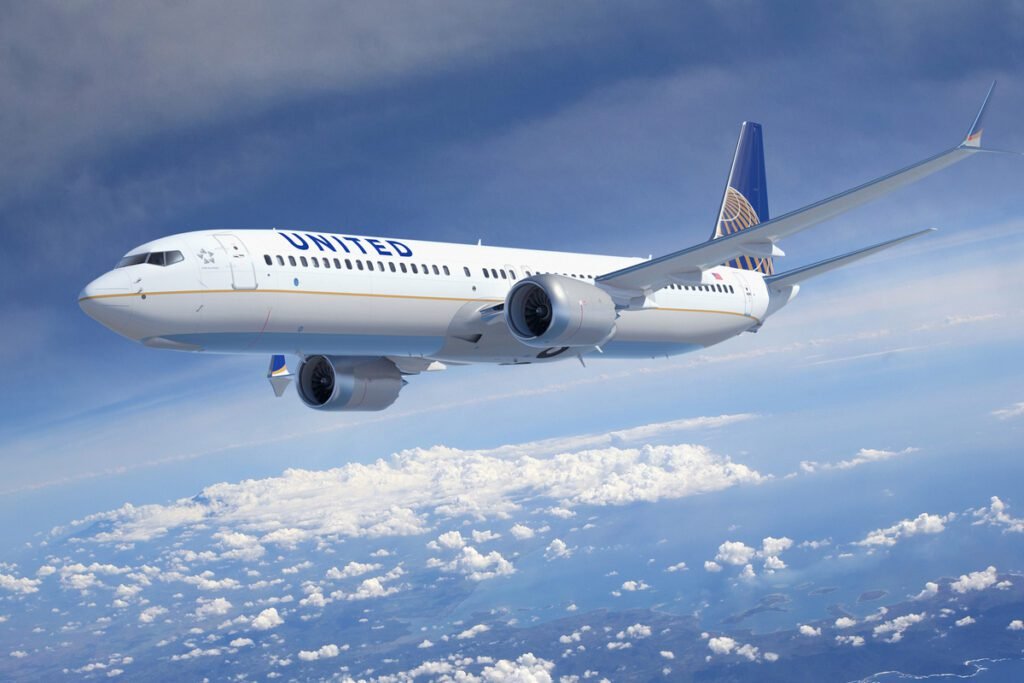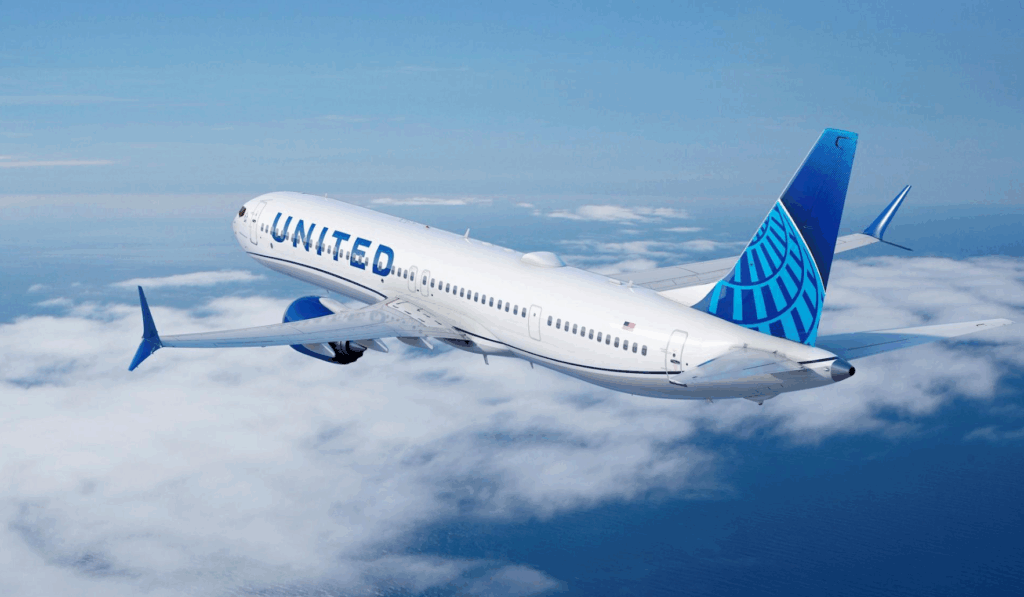In a significant move that strengthens international aviation ties, a Dubai-based aviation company has signed a major purchase agreement with United Airlines for 10 Boeing 737-9 aircraft. This development signals a growing trend in global airline cooperation, where cross-border partnerships are reshaping the future of air travel and fleet expansion.
This deal is not only a testament to the strong demand for efficient, next-generation aircraft but also reflects the strategic foresight of both parties involved, Dubai’s fast-evolving aviation industry and United Airlines’ ongoing fleet modernization.
Introduction: The Boeing 737-9 Purchase Agreement
The Boeing 737-9 purchase agreement between a Dubai-based aviation firm and United Airlines marks a major international deal in the commercial aviation industry. The agreement includes the acquisition of ten Boeing 737-9 jets, underscoring confidence in Boeing’s advanced narrow-body aircraft lineup and the growing demand for versatile, fuel-efficient planes.

The Dubai firm, though not yet officially named in public releases, is known to be a key player in aviation investment, leasing, and fleet management. Their decision to acquire planes from a major US airline, instead of directly from the manufacturer, adds a unique layer of strategy and possibly cost-saving opportunity.
Overview of the Boeing 737-9 Aircraft
The Boeing 737-9 is part of the 737 MAX family, an aircraft series designed for efficiency, reduced fuel consumption, and longer range.

Key features include:
- Seating capacity of up to 220 passengers
- Maximum range of approximately 3,550 nautical miles
- Advanced CFM LEAP-1B engines for fuel savings
- Enhanced aerodynamics including Advanced Technology winglets
- 14 percent more fuel efficiency compared to earlier models
The aircraft is especially suitable for short to medium-haul routes, which makes it ideal for high-density markets across the Middle East, Asia, and Europe.
Key Players in the Agreement
Dubai-Based Aviation Firm
The unnamed Dubai firm is widely believed to be involved in aircraft leasing and aviation asset management. With Dubai’s strategic geographic position and its thriving aviation hub at Dubai International Airport (DXB), such companies are increasingly active in both regional and global fleet investments.
United Airlines
Headquartered in Chicago, United Airlines is one of the largest airlines in the world. The airline has been on a modernization spree, aiming to replace older aircraft with newer, more efficient models. Their partnership with Dubai-based investors reflects a mutually beneficial arrangement.
Strategic Implications for Dubai’s Aviation Sector
This Boeing 737-9 purchase agreement places Dubai in a favorable position on the global aviation map. The deal is expected to:
- Strengthen Dubai’s role as a global aviation leasing and investment hub
- Enhance the region’s access to modern aircraft for regional and international airlines
- Attract further investments into aviation finance and leasing markets
Dubai’s government has consistently supported initiatives that encourage innovation and expansion in aviation, and this agreement further reflects those ambitions.

United Airlines’ Fleet Expansion Vision
United Airlines has been investing heavily in modern aircraft to meet growing travel demands and sustainability targets. The sale of 10 Boeing 737-9 jets to a Dubai-based firm fits within its broader strategy to:
- Upgrade its fleet with more fuel-efficient planes
- Create room for next-generation aircraft in production
- Reallocate resources for long-haul wide-body aircraft acquisitions
By offloading part of its narrow-body fleet to international partners, United can maintain flexibility while securing future growth.
What This Deal Means for Boeing
Boeing stands to benefit significantly from this deal, albeit indirectly. The 737-9, part of the MAX family, has faced challenges in recent years, including regulatory scrutiny and reputational issues. However, deals like this:
- Reinforce confidence in Boeing’s product line
- Extend the aircraft’s market reach through secondary buyers
- Help in restoring public and investor trust
Moreover, this agreement could spark renewed interest from other investors or airlines that may have hesitated due to the aircraft’s past.
Industry Expert Reactions
Aviation analysts and experts have weighed in positively on the deal.
John Michaels, an aviation finance analyst, said:
“This is a smart move. Leasing companies are now eyeing aircraft not just from OEMs but also from airlines. It reduces lead time and can often come at a better deal.”
Fatima Al Suwaidi, a UAE-based aviation strategist, added:
“Dubai has always been at the forefront of aviation innovation. This deal confirms the emirate’s commitment to expanding its role beyond just operating airlines to owning aviation assets.”
Environmental and Efficiency Impact
The Boeing 737-9 is designed to be environmentally friendly, producing fewer emissions per seat compared to older aircraft models. The shift toward fuel-efficient aircraft like the 737-9 helps:
- Lower carbon footprints per flight
- Reduce overall fuel costs for operators
- Contribute to global climate goals for the aviation sector
Dubai’s firm, in purchasing these aircraft, is making a sustainable investment that aligns with environmental and regulatory demands of the future.

Potential Market Ripple Effects
The agreement could set off a series of events and reactions within the global aviation industry:
- Other Middle Eastern or Asian firms might pursue similar deals
- Airlines facing delivery delays may explore secondary market purchases
- Aircraft leasing and asset management firms may increasingly turn to airlines for deals
The blending of airline-to-leasing firm transactions opens up new avenues for fleet management and international cooperation.
Final Thoughts
The Boeing 737-9 purchase agreement between a Dubai-based aviation firm and United Airlines is a milestone deal that showcases the growing interdependence of global aviation markets. It represents more than just a fleet transaction. It is a sign of trust, strategic foresight, and evolving market dynamics.
This partnership could very well inspire a shift in how aviation assets are traded and managed, especially in regions like the Middle East, where aviation is not just a business but a backbone of economic growth.
As Dubai continues to diversify its aviation ecosystem, from being a world-class airline operator to a global aviation asset manager, deals like this affirm its leading role in the future of flight.
Do follow UAE Stories on Instagram
Read More: Israel Eyes Sixth-Gen F-47 Fighter Jet to Maintain Military Superiority














